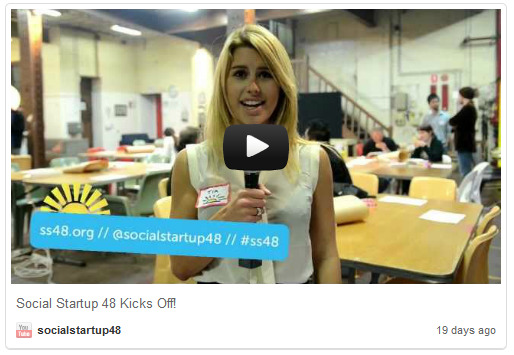 So what is this thing we call crowdfunding? What’s going on here? What words should we use to describe the phenomenon and the behavior that propels it?
So what is this thing we call crowdfunding? What’s going on here? What words should we use to describe the phenomenon and the behavior that propels it?
Some of the coverage of Kickstarter can border on the nonsensical, so unable are people to understand what strange force it is that propels its success. For some it is investing, but they get flustered when the behavior doesn’t accord with their notion of how investors act. Others see Kickstarter as a form of charity and get snarky at its perceived shortcomings. But in fact it’s neither of these things.
What it is, mostly, is shopping.
This understanding allows us to gain perspective on what’s happening and the likely market size of different crowdfunding platforms and approaches.
Two recent posts show the difficulties people have in characterizing what’s happening on Kickstarter.
Mashable looks at the phenomenon through an investment frame and declares to their evident disgust that “investors” on Kickstarter are not entirely rational. (Because “real” investors are paragons of rationality of course) with the nice even-handed headline “Are Kickstarter Investors Idiots or Geniuses?”
The more cynical side of me wonders if we aren’t all being played. I mean, who wouldn’t watch these videos and want to make these projects a reality? I wonder if venture capitalists watch the pitches and laugh. Before they back something, they get a good look — a really good look — at the people, the product/prototype/project and the market. They know so much before they decide to invest at any level. For them, it’s all about measuring risk.
They go on to "wonder if all of the buzz surrounding Kickstarter is now driving funds into projects that would otherwise never make it in the real world", somehow excluding Kickstarter from their understanding of the "real world." When you look at this behavior through the "investment" frame it can look strange, but when looked at through the shopping frame it makes perfect sense.
Meanwhile Crowdfund UK bemoans the lack of social impact of many of these projects who are, to their disappointment, acting like, well, most other technology or design startups:
OK Pebble were only expecting funding to cover 1000 watches and now 85,000 are pre-sold. There’s capacity and scale – and China is can knock out huge orders by their huge workforce in their huge factories. What’s the hurry? The campaign promised the watches by September. Would donors care if they were told that there a was a delay as they were manufacturing in country – building the capacity of a recession hit area maybe? [This would be] good P.R. justifying the recent Jobs Act.
On Twitter the disappointment often takes on a more snarky or condescending tone as commentators confuse the fundamental reason why people are supporting Kickstarter projects:

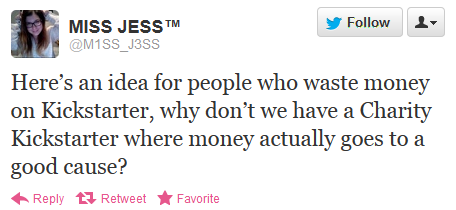
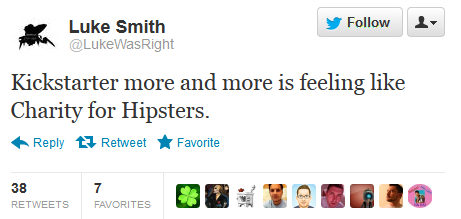
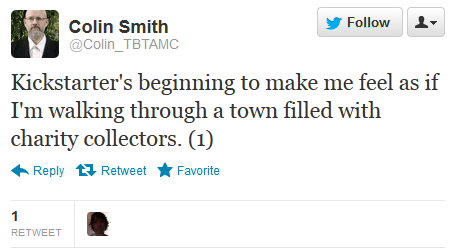 Putting aside that StartSomeGood is a charity-oriented Kickstarter here too they are missing what's really happening. Those who backed the Ouya video game console campaign on Kickstarter weren't, in all likelihood, diverting money they would otherwise have given in charity. This came out of their consumption budget. That may bother you but then the issue you have is with capitalism, not with Kickstarter as such. But if instead of seeing it as just another market you think of Kickstarter campaigns as a form of very poorly-targeted charity, then your frustrations make sense, because you are operating in the wrong frame.
Putting aside that StartSomeGood is a charity-oriented Kickstarter here too they are missing what's really happening. Those who backed the Ouya video game console campaign on Kickstarter weren't, in all likelihood, diverting money they would otherwise have given in charity. This came out of their consumption budget. That may bother you but then the issue you have is with capitalism, not with Kickstarter as such. But if instead of seeing it as just another market you think of Kickstarter campaigns as a form of very poorly-targeted charity, then your frustrations make sense, because you are operating in the wrong frame.
After raising a new record amount for a music project on Kickstarter Amanda Palmer (former lead singer of The Dresden Dolls) got sick of dealing with this attitude as well and responded to some of the common questions on her blog:
Q: @JariPeltola
Are the donations tax-free income?
A: this is a good question mostly because of the way it’s worded.
to answer: no..all the money i’m making on CD and LP (and book, and everything) sales via kickstarter is taxable.
AND
these aren’t DONATIONS. that drives me crazy. they way we generally define “donating” is that you are giving something without any return: it’s a selfless, one-way gift to a cause. this is not that. every single person who’s backed the kickstarter is getting a product or a service (like a show) that they’ve paid for.
it’s more of a pre-order than a “fundraiser.” the language here gets important. it makes me cringe to read in the press that people have “donated $600k to amanda palmer’s kickstarter.” that makes it seem like i’m getting away like a bandit. as you can see above,i have to PAY for and manufacture (and pay the staff to help me create) all the products that are for sale. it’s almost as ridiculous as newsweek proclaiming that “people donated over $56 million dollars to apple in order to own the new iPhone 4G”. that would sound DUMB. this is a marketplace. an art marketplace, but still. it’s a real exchange. i have A Thing (it’s A Weird Thing, but still) and people are buying it….via the vehicle of kickstarter.
and…
Q: @cynicalinternet
deep question: didnt you feel guilty asking for handouts? like you should be able to get the money on your own somehow?
A:
@cynicalinternet, your name is just perfect.
ask me that question again….slowly. and this time listen to yourself.
“like you should be able to get the money on your own somehow”?
are you FUCKING KIDDING ME?
THAT’S EXACTLY WHAT I FUCKING JUST DID.
There's lots more of that sort of wisdom on her blog if you're interested.
So let’s step back for a moment. Why do people give money to anything?
There are four basic motivations:
1. A good or service we would like to consume (shopping)
2. An expectation of future financial return (investment)
3. A cause we care about and a change we want to support (philanthropy)
4. A relationship we value (helping a friend or family member out).
While all of these factors are in play on Kickstarter with the exception of the still-illegal number 2, which is the driver of the mega-fundraisers you hear most about?
For mega campaigns like the Pebble Watch or Ouya it’s clearly number 1, shopping. People supported the Pebble Watch, the reigning Kickstarter fundraising champion, because they wanted a Pebble watch. It’s no more complex than that. The best name for what’s happening on Kickstarter (and Pozible in Australia) is pre-sale crowdfunding, as Amanda Palmer suggested. There’s a product you want and you can pre-order it, and in so doing provide the financial capital for that product to be produced. Charity this ain’t.
What is more charity-like is supporting projects because you want to see a social impact they are creating, an extrinsic reward, not because you want the intrinsic or material reward they are offering. This dynamic is strongly at place for campaigns on StartSomeGood and many on Kickstarter, Pozible and IndieGoGo as well, but it does not describe the success of the huge commercial fundraisers the commentators are usually trying to understand. Just as different markets focus on different types of goods (brand-name goods at Best Buy, hand-made at Etsy, second-hand at Craigslist) so too will different crowdfunding platforms likely success by focusing on these different forms of motivation.
Thinking about crowdfunding in this way also gives us a sense of how large the various markets will be. The question “can equity-based crowdfunding be as big as pre-sale [Kickstarter] crowdfunding?” is essentially asking if investing is going to be as big as shopping. Which is unlikely. When most people have a spare $125 to spend they usually put it towards something cool they want to consume, like a Pebble watch, and not into something which may, perhaps, provide a long-term financial return.
This isn’t to say that equity-based crowdfunding won’t be significant, it will be. It will create a new opportunity for entrepreneurs which will be enthusiastically and effectively embraced, leading to the launch of thousands of new companies. But it won’t surpass the amount spent on pre-purchasing books, CDs, concert tickets, technology, iPhone accessories and the like through platforms like Kickstarter.
We’re realistic about what this means for StartSomeGood, given our focus on the 3rd category of spending, philanthropy (with 1. and 4. playing very important roles as well). Few people put more into charity than they spend on their own consumption but many of us do put some portion of our income into good causes in order to support those less fortunate or to promote a change we wish to see in our community or the world. For some of us that portion is very significant and in aggregate the total contributed is huge.
Opening up this opportunity to new social innovators is critical to allowing new solutions to emerge and to empowering communities to create the future they need. We don’t need to be “bigger than Kickstarter” to realise this opportunity, we just need to be sustainable and effective in helping social entrepreneurs and non-profits to launch and grow socially impactful initiatives. (And we reject the comparison anyway, because we’re not competing with Kickstarter).
So thinking back to the crowdfunding (*ahem* peerfunding!) campaigns you have supported – what motivated your giving? And be honest, it’s okay to want cool stuff and get excited about new technology, but let’s understand that for what it is. And let’s complement that consumption by putting aside some funds to back social impact projects as well, because our world needs more changemakers and they need your support.
Image by THEfunkyman on flickr, made available on a creative commons license.
 Today is Blog Action Day, a day when thousands of bloggers around the world join together to explore and express themselves on a shared topic. This year that topic is The Power of We.
Today is Blog Action Day, a day when thousands of bloggers around the world join together to explore and express themselves on a shared topic. This year that topic is The Power of We.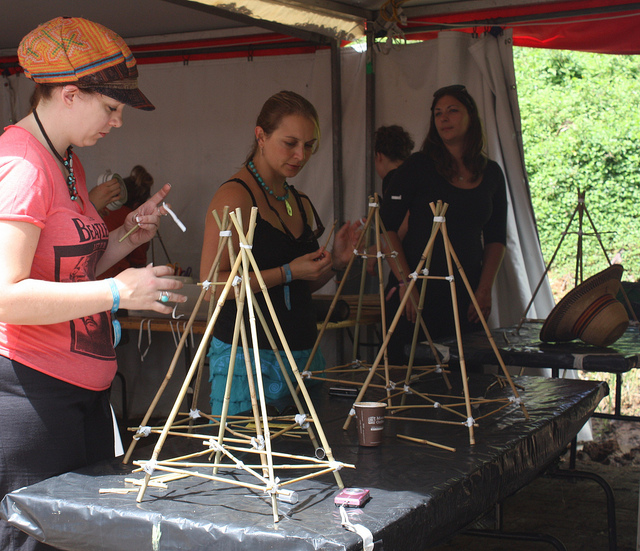



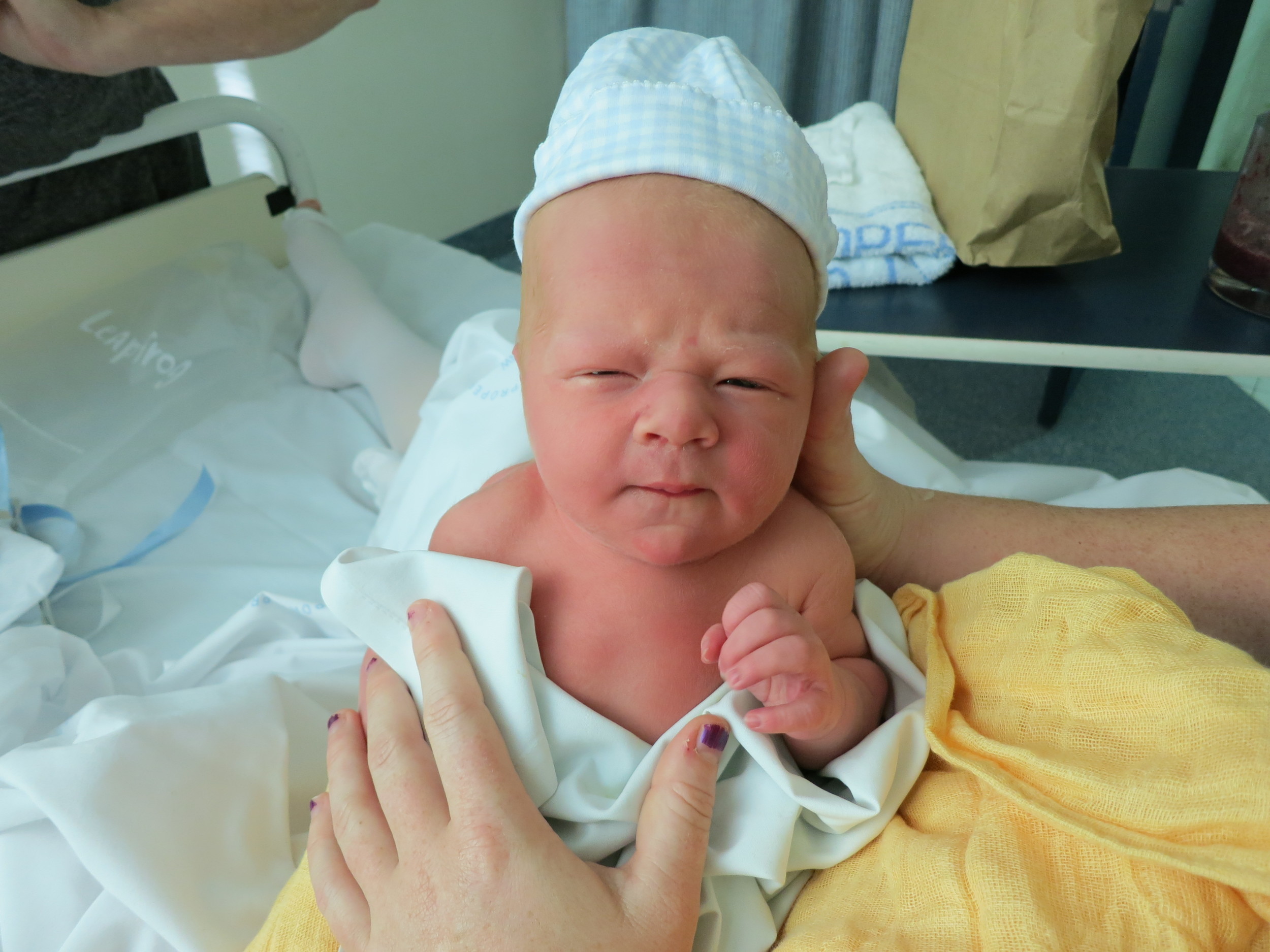






 Bill Drayton, founder of
Bill Drayton, founder of 
